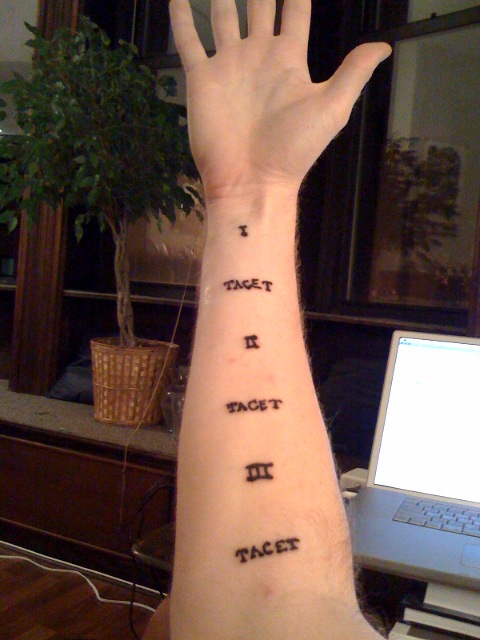…and that is commercialism as I need it. I have ongoing doubts about the propriety of taking off three months of my life to write a Cage book. I never aspired to be a Cage scholar. By the late ’80s so many people were doing excellent work on him that I just bowed out. I have a phobia about competition, and I despise duplicating the work of others. I got a blast from analyzing all of Nancarrow precisely because I was learning so many things no one else yet knew. Years ago Oxford asked me to write a Charles Ives biography. Few things would have given me greater pleasure than spending two years immersed in Ivesiana, but Jan Swafford’s superb biography had just appeared, and the idea of taking all that time away from composition to awkwardly paraphrase what Jan had already said so eloquently just wasn’t conscionable. Yet here I am, and I have nothing to say about 4’33” that hasn’t been said before, and better. If I come up with a single original insight by the time I finish this book, I’ll be as surprised as anyone.Â
Luckily, the book is intended for a general audience. It’s part of a Yale University Press series called “American Icons.” The other volumes in process so far concern the Empire State Building, the Superman comic book series, and the Marlboro Man. This last sounds like the one to bet on: the Marlboro Man was invented because Marlboro started out as a women’s cigarette, and they started trying to market it to men. But then the Marlboro Man (before he got lung cancer) became a gay icon, so in a sense he came full circle. How much more fun does that sound like than a book on five minutes of silence?
The sad fact is, though, that this book will advance my reputation in musicological circles far more than the postminimalism book I should be working on. As I’ve noted often before, a musicologist’s reputation is proportionate to the square of the fame of the composer he’s an expert on. Explaining Mikel Rouse and David First and Eve Beglarian to the world will make me more an oddity than an expert. Writing a Cage book won’t put me up with the Beethoven and Bach savants by a long shot, but it will zoom me up near the top of the relatively small 20th-century heap. Quality and content play little part in this dispensation.
And yet that’s not at all why I’m doing it: I’m more doing it in spite of that. I would rather spit in the eye of every musicologist in Christendom than lift a finger to achieve status in such an artificial, unthinking heirarchy. A couple of friends have been kind enough to tell me that I’m a better composer than writer, and I would like to think so. Personally, I believe that my most important contribution to the world is the extent to which I have developed just intonation into a broader musical language, with deep roots in tonal practice and tremendous ramifications for future usage, and if I had my druthers, which I don’t, I’d infinitely prefer to be remembered for that. I have no ambitions at all as a musicologist, beyond righting the wrongs that good composers of my generation have suffered.
So why am I doing this? Because the opportunity arose, offered by an editor who’s an old friend, with a generous advance attached, and, in a Cagean spirit, I grabbed it. Because Cage played a tremendous role in my youth and only a peripheral role in my adulthood to date. Because Zen was a wonderully energizing influence on my life in the ’70s and early ’80s, and I’ve been too long divorced from it. Because he was a wonderful man, and his personal example laid an indelible imprint on my life. (Among other things, I think I absorbed from Cage the lesson that being a prolific and controversial writer can help augment one’s reputation as a composer.) So ultimately my motivations are self-serving, in the deepest possible sense: to get back to my roots, to backtrack over where I came from, to figure out why, at age 17, performing 4’33” in public seemed like such an important thing to do. To revisit those high school days in which I enthusiastically played the Everest recording of Variations IV for my theory class, with my teacher and classmates all terribly dubious as to whether that was actually music. As of June 8 I’m at the beginning of a new 30-year astrological cycle in my life, and I needed to reorient myself. I’m at a lull in my compositional activity, with many large projects just completed and new ones still vague in my mind. And I’m hoping, hoping against hope, that newly understanding 4’33” and the rest of Cage’s post-1950 output, as an adult, will propel me, as a composer, in a new and hopefully completely unexpected direction.

